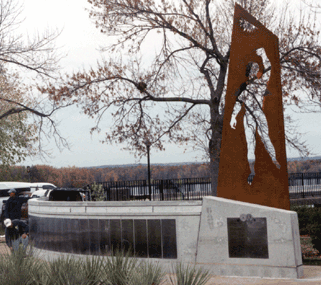Many years ago, at the end of a long and boozy evening, my father
told me that he’d tried to enlist in the Mackenzie-Papineau Battalion.
He was in his teens then; he wanted to fight in the Spanish Civil War.
When I asked why, he told me he was bored, there was no work at home
and — he was dark, my old man — he said that he wanted to die.
They sent him home.
Had he gone to Spain, he surely would have gotten his wish, and I would not be writing this.
Now, the disclosures:
I used to work for CBC Radio; my beloved still does; the CBC’s
acclaimed radio documentary maker, Steve Wadhams, is a friend; and here
is how it all comes together:
There was an article in this newspaper a while back about Jules
Paivio, the last living survivor of the Mac-Paps. Wadhams played a hunch
— he asked the CBC archivist if Paivio had ever been interviewed.
Yes, there was a long interview on tape, recorded by journalist Mac
Reynolds in 1964. Wadhams listened to the interview avidly. But he sat
bolt upright when the archivist said, “You know there are more
interviews.”
Turns out there were 150 hours of interviews. Reynolds had traveled
the country in 1964 and 1965, looking for Mac-Pap vets, finding some 50
of them, and recording as many as he could.
No one but the archivist knew the material was there, or had paid it any mind, until that moment.
Wadhams quickly unearthed a letter from Reynolds to the legendary
producer and CBC executive Robert Weaver, asking about airtime.
But there was no reply on file, nor any evidence that the material
had ever aired. In other words, these were voices that had never been
heard before. Wadhams found himself sitting on a motherlode of
historical gold that had been hiding in plain sight.
He did some research and learned that Reynolds had been, um, a
fellow-traveller who had gone to England to join in the fight, but
somehow had never made it to Spain. “I inferred from this that he had a
motive for doing these recordings.”
Of course, the only motive you really need, in oral history, is the truth as it is told by witnesses to history.
Remembrance Day was looming. The Mac-Paps are not officially remembered on Nov. 11.
Wadhams got to work.
He started to edit — luckily, the interviews had been shot-listed —
and as he worked, he read as much as he could about the Mac-Paps.
They were much more than a bunch of unemployed rabble-rousers and
commie sympathizers in search of adventure. They were men who wanted to
stop fascism in its tracks.
They came from all across Canada; some had already run from
totalitarianism; plenty of them had been in labour camps. They got shot
up, some of them, before they crossed the Pyrenees.
The war itself was a slaughter: Guernica, phosphorous bombs, soldiers
on horseback fighting Hitler’s warplanes; Bethune and mobile blood
transfusions.
And remember this: when the men who survived came home, they were ignored.
Wadhams played me a piece of tape the other day. I listened to a vet
recalling what happened when a submarine torpedoed the ship he was on;
the last man who drowned — poor fellow, clinging to the mast in terror
as the ship went under — was from the Lakehead, my home town.
Maybe he knew my old man.
The documentary airs in two parts, on CBC Radio 1: The first hour of
“The Spanish Crucible” will be broadcast Friday, on “Living Out Loud,”
at 1 p.m.
It will be repeated on Remembrance Day at 8 p.m. Part Two airs on Nov. 16, and will be repeated on the 18th.
A final disclosure: the voice of the Star’s reporter, Greg Clark? That, proudly, is me.
Joe Fiorito appears Monday, Wednesday and Friday. Email: jfiorito@thestar.ca





~ ~ ~ ~ ~ ~ ~ ~ ~ ~ ~ ~ ~ ~ ~ ~ ~ ~ ~ ~ ~
Hi Joe,
Well done! First step almost in place ...
My friend Sylvia gave me the heads-up about your column today. We both save our 7 or so 'free' monthly visits to The Star so we can enjoy your columns. Terry Barker (from the tribute to Ray at Runnymede Library) was at a poetry gig with George E. C. in the little east end park at Taylor's Creek Ravine a few weeks ago. Lots of stuff in the works promoting CanPoets. Following is a posting about the Quattro book launch on Ray's birthday (suspect you may already be in the know & attending). Also we're doing a tribute book on Milt, ACORNucopia, with Mosaic Press. Can't remember offhand if you've sent a piece for that?
All well here ... but let's keep those kids healthy in the park so they can look after us in our dotage : )
peace & poetry power!
Chris ... & Chase Wrffffffffffffffffffffffff!
p.s. in August I posted a comment under your column, & the process ate up all of my monthly allotment of free visits to The Star ... arrggggggghhhh
you might suggest to the-powers-that-be that postings not count against free visits
~ ~ ~ ~ ~ ~ ~ ~ ~ ~ ~ ~ ~ ~ ~ ~ ~ ~ ~ ~ ~ ~ ~